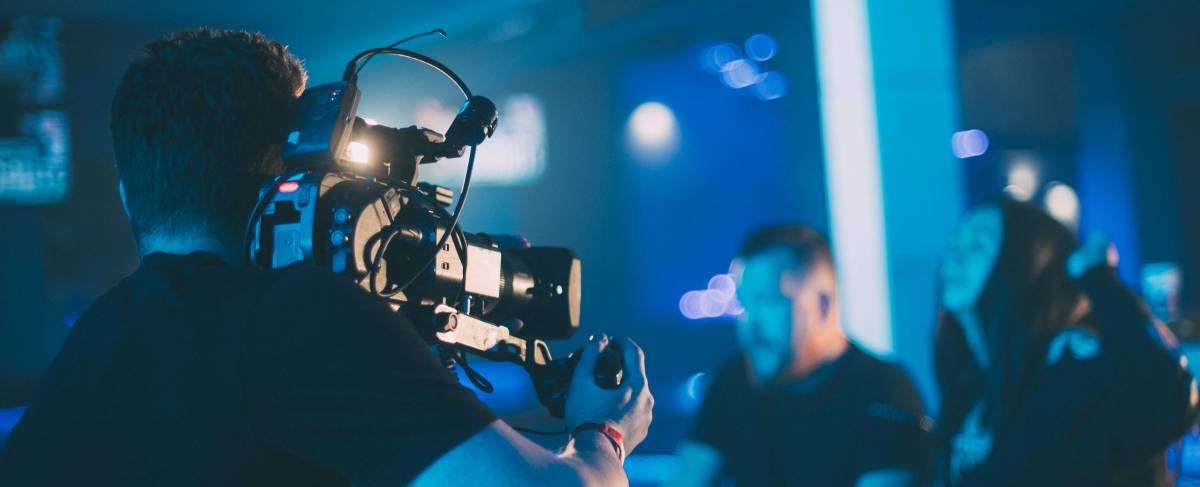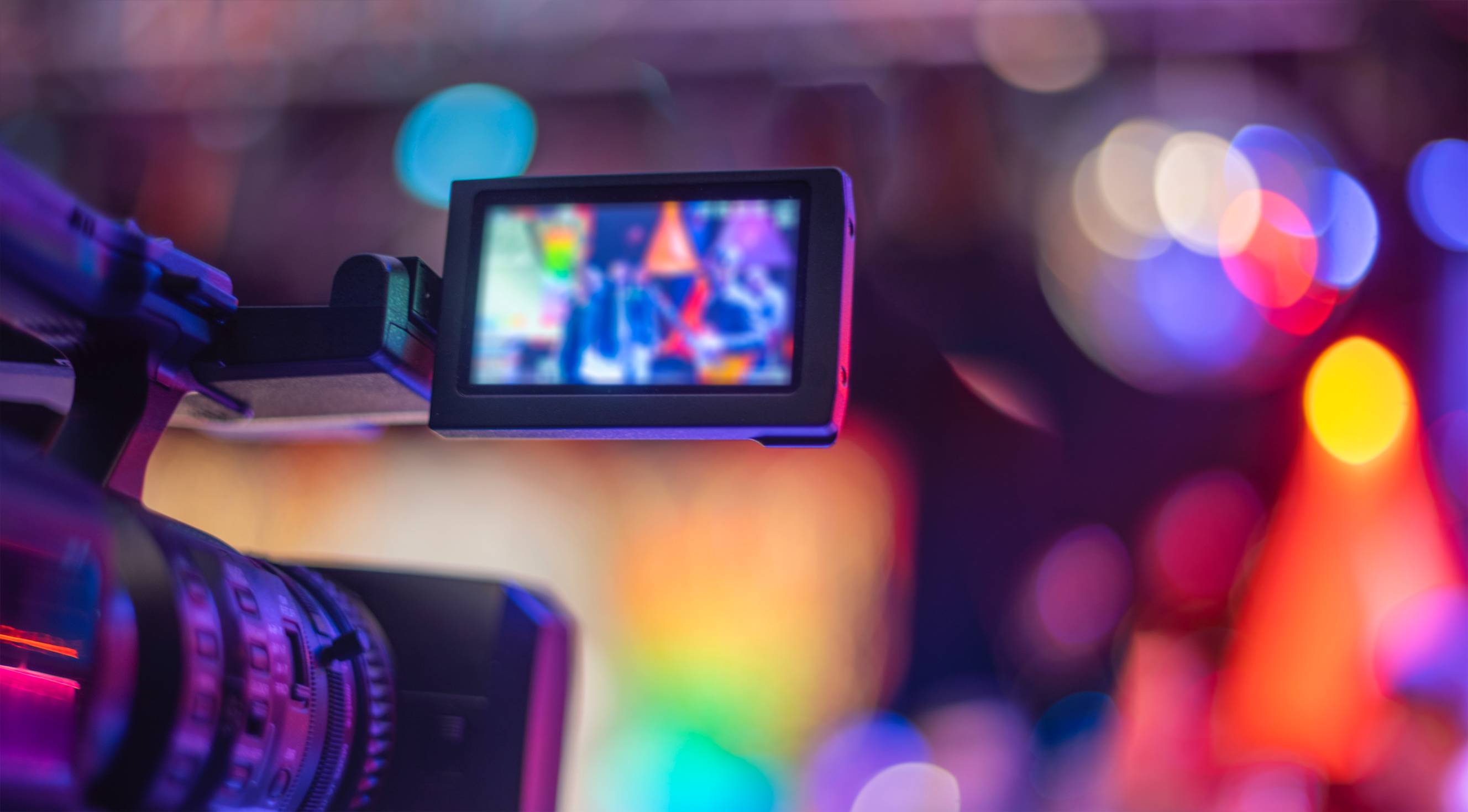
- Home/
- Comparisons/
- Videographers/
- Videographer vs Cameraman
Videographer vs cameraman: How do these roles differ?
Unpacking the differences between a videographer and a cameraman.
Published on
Key Facts
A videographer is an expert who manages every stage of video production, from initial concept to the final polished edit.
A cameraman is a specialist in camera operation who captures footage precisely as envisioned by the director, cinematographer, or camera crew.
When it comes to creating visually stunning videos or content, it’s all about capturing the right shot, framing the perfect angle, and delivering a cinematic aesthetic. But who’s the best choice for your project, a cameraman or videographer?
Whether it’s filming a bustling London wedding or capturing the timeless charm of the Lake District, hiring a videographer offers versatile coverage, while a cameraman provides specialised cinematic precision. With short-form videos delivering the highest ROI across digital platforms, the right expert can make all the difference. In this videographer vs cameraman guide, we’ll break down the differences to help you decide.
What is a videographer?
 A videographer shooting their subjects. (Source: iStock)
A videographer shooting their subjects. (Source: iStock)
A videographer is your go-to for capturing every part of the video process, from the initial concept all the way to the final edit. They’re perfect for events or projects that need more than just basic footage, which showcases what the difference is between a cinematographer and a videographer. Cinematographers typically handle larger productions, while videographers excel in smaller-scale projects with a personal touch.
With a blend of technical skills, like camera work, lighting, and sound, and creative expertise in storytelling, colour grading, and editing, videographers can take a vision and run with it. If you’re after a seamless, story-driven production, a videographer can transform your project into a polished visual experience.
What is a cameraman?
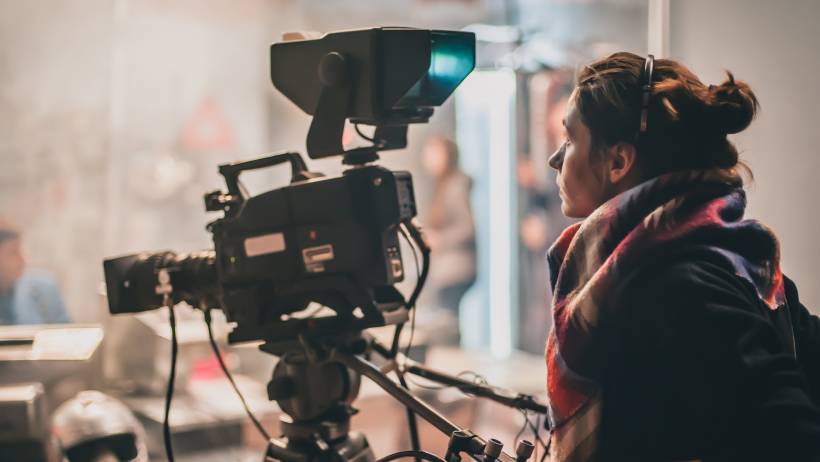 A camera operator behind the scenes. (Source: iStock)
A camera operator behind the scenes. (Source: iStock)
Whether you're working on a film, a live event, or a corporate video, hiring a cameraman can help capture high-quality footage that brings your vision to life. Often part of a larger film production team, a cameraman is skilled in camera operation, lighting, and framing, and is essential for creating stunning shots that make your video look polished and professional.
While they work closely with a director or cinematographer to ensure each scene aligns with the overall concept, they also bring their own technical expertise to the table to set up and capture each shot to perfection.
Cameraman or videographer: When should you hire each?
Both a videographer and a cameraman are essential to any successful audio-visual project, but each brings unique skills and areas of focus that suit different types of productions. Understanding these distinctions can help you choose the right professional to capture your vision.
In terms of project scope
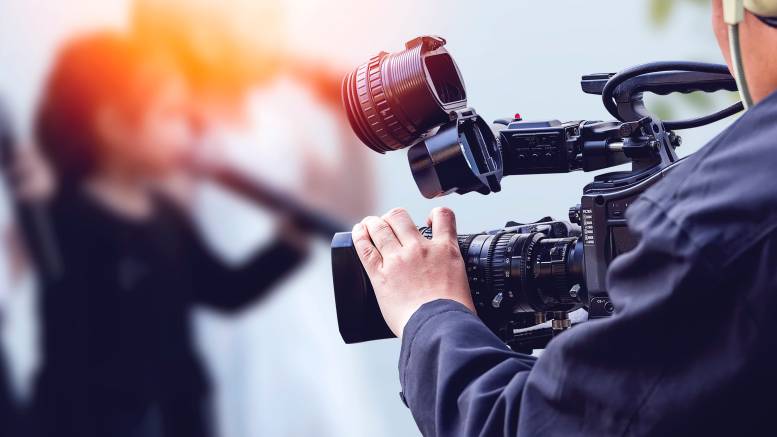 A camera operator using the equipment. (Source: iStock)
A camera operator using the equipment. (Source: iStock)
A videographer typically manages smaller-scale productions and handles most aspects of filming independently, from planning to editing. This makes them perfect for events, corporate videos, or any project where you need a more compact, one-stop service.
On the other hand, a cameraman usually fits into larger, more complex productions, like feature films, TV shows, or major commercials, where they work as part of a bigger team. Here, their focus is on capturing the footage as directed by a cinematographer or director, and they’re part of a specialised crew for a specific, well-defined role.
Like the difference between cinematography and videography, cinematography involves large-scale, collaborative productions, while videography is often a solo approach for smaller projects. So, whether you need a versatile videographer or a focused cameraman depends on your project’s vision and scale.
In terms of responsibilities
If you’re choosing between a videographer and a cameraman, their responsibilities are quite different.
A videographer handles a wide range of tasks from planning the shoot to setting up lighting and sound, filming, and editing the video afterwards. They’re multi-skilled and often oversee almost every detail, making sure everything aligns with the project’s goals and running the show from start to finish.
Whereas a cameraman’s role is more focused and usually operates under the direction of someone else. They operate the camera and work closely with the director or cinematographer to get the shots just right. Cameramen handle technical details like framing, lighting adjustments, and following scripts, but they aren’t usually involved in broader tasks like planning or editing.
In terms of creativity
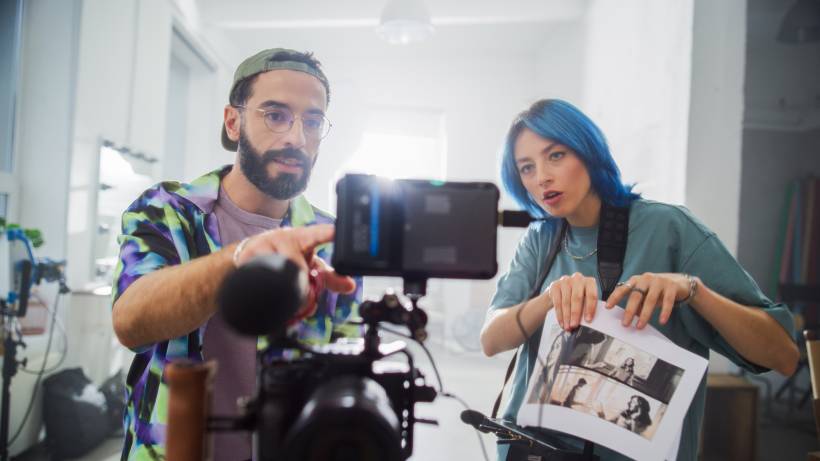 A videographer collaborating with a colleague. (Source: iStock)
A videographer collaborating with a colleague. (Source: iStock)
In this industry, a creative touch is essential, and both videographers and cameramen bring their own unique flavours to a project.
A videographer often has full creative control over the production, acting as the main visionary behind the scenes. This makes them an ideal choice for bloggers, vloggers, or anyone looking to capture more spontaneous, dynamic content. They can adapt on the fly, adding creative twists that suit live events or unscripted settings.
Alternatively, a cameraman’s creativity shines within a more structured role. They bring creative input to aspects like framing, camera angles, and lighting adjustments. They are skilled at crafting scenes from unique perspectives, often turning everyday scenes into visually compelling moments that stand out on screen.
In terms of event coverage
A videographer, like wedding videographers or a fashion videographer, is usually hired to capture the full scope of an event. They’ll document every moment, from main highlights and emotional speeches to behind-the-scenes interactions, giving a comprehensive view of the occasion. Videographers are agile and proactive, ready to catch each critical moment as it unfolds naturally.
Conversely, a cameraman is less likely to cover an entire event independently, as they’re typically part of a larger production team. For events like live sports or news, a cameraman may be hired to capture specific shots rather than the whole experience. Their role is more concentrated, focusing on capturing high-quality footage for a particular segment or scene rather than providing full event coverage.
In terms of video editing
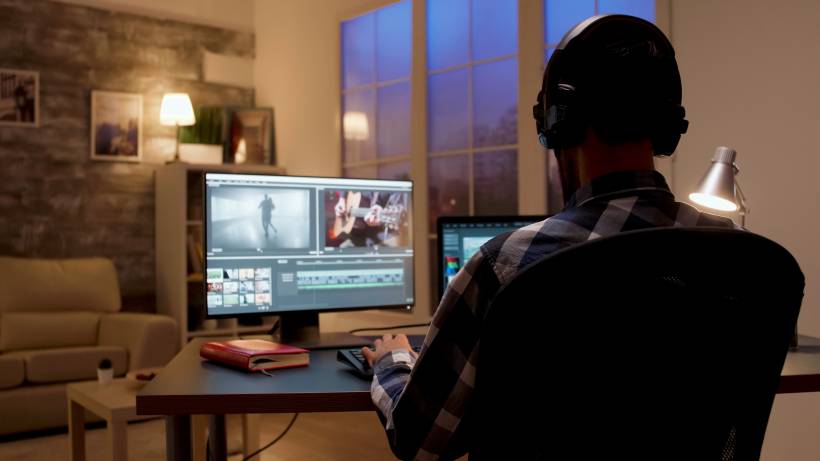 A video editor editing clips. (Source: iStock)
A video editor editing clips. (Source: iStock)
When it comes to video editing, this is where a videographer and a cameraman differ significantly.
A videographer typically handles post-production, transforming raw footage into a cohesive final video using video editing software like Adobe Premiere Pro or Final Cut Pro. This includes adding transitions, visual effects, audio adjustments, and sometimes even custom graphics to ensure the video aligns with the project’s purpose and flows naturally from start to finish.
In contrast, a cameraman’s role usually ends after filming, as they focus on capturing the best raw footage possible. Their work is then passed to a post-production team, who use similar editing software to shape the footage into the final product.
In terms of service cost
Hiring a videographer or cameraman varies in cost based on factors like experience, event type, date, and location.
Videographers often offer flexible pricing, with hourly rates from £40 to £250 and day rates ranging from £300 to £1,000. However, a wedding videographer might charge between £399 and £3,495, depending on the package and add-ons like extra cameras or extended coverage, as these types of events require detailed planning and near-perfect execution.
Cameramen generally have similar hourly rates but usually charge between £550 and £750 for a day rate. Therefore, for specific events like weddings or film projects, it is wise to compare quotes, as packages often include various perks and levels of coverage to fit different budgets.
Find skilled videographers and cameramen on Airtasker
Choosing between videography and camera work can transform the way your project unfolds. If you’re seeking versatility and creativity for a lively event, a videographer is your ideal choice for capturing the energy and spontaneity of the moment, while a cameraman can deliver the precision and focus you need for a specific concept.
So, whether you’re looking for a wedding videographer to beautifully document your special day or a cameraman to shoot an engaging video ad for your business, take the next step! Post a task today and find the perfect match to bring your vision to life!
Videographer vs Cameraman
| Videographer | Cameraman | |
|---|---|---|
Project Scope |
Manages smaller-scale productions independently, handling planning to editing |
Fits into larger productions like films or TV, focusing solely on camera work within a team |
Responsibilities |
Oversees entire production, including planning, filming, lighting, sound, and editing |
Operates the camera as directed, focusing on framing and technical setup, but not on broader production tasks |
Creativity |
Holds creative control, adapting in real-time for dynamic, unscripted content |
Adds creativity within a structured role, focusing on framing, angles, and lighting adjustments |
Event Coverage |
Captures full events, documenting key moments and providing a comprehensive view |
Films specific segments within a team, rather than covering the whole event independently |
Video Editing |
Handles post-production, transforming raw footage into a cohesive final video with editing software |
Usually completes role after filming, passing raw footage to a post-production team |
Service Cost |
Flexible rates, ranging from £40–£250 hourly, £300–£1,000 daily |
Ranging from £40–£250 hourly, with day rates typically between £550–£750 |
FAQs on videographers and cameramen
While both are essential for quality footage, a cameraman typically takes a more creative role in planning shots, while a camera operator focuses on the technical execution.
Turnaround times vary depending on your project, but a simple video can take a few days, whereas more complex projects like weddings might take a few weeks.
Yes, a videographer can do photography. Some videographers offer photography services too, providing a convenient solution for clients needing both video and photo coverage.
Find videographers, fast
Post a task
Related articles
